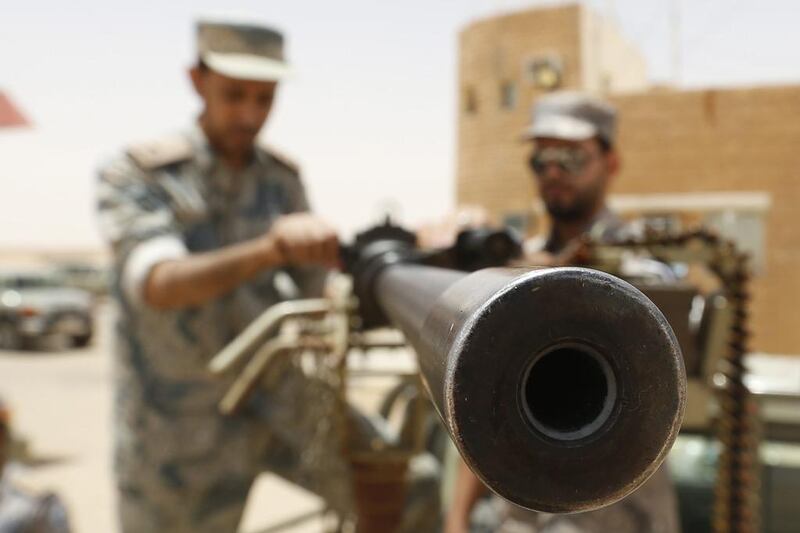A man accused of killing a Saudi soldier admitted to being affiliated to ISIS in a Riyadh court on Tuesday.
During the first hearing session, the suspect, along with seven others, was accused of inciting dissent in the kingdom after he fired a machine gun 30 times, killing the soldier on a road in Tabuk in north-west of the country.
The suspect, a Saudi citizen, said he was under the influence of hashish and opium when the attack took place in 2016, local media reported.
The suspects opened fire at the car of the victim, Abdullah Al Rashidi, who was on his way to work in the morning.
He was pronounced dead in the ambulance on his way to hospital after his car crashed and after sustaining a number of bullet wounds.
_________
Read more
Saudi Crown Prince: Together we can spread moderate Islam
Mohammed bin Salman's London visit marks a key moment in Saudi Arabia's transformation programme
_________
The suspect said he was carrying out orders from Abubaker Al Baghdadi, head of ISIS, and was influenced by watching propaganda disseminated by the terrorist group online.
Saudi Arabia has recently been cracking down on terrorists in the kingdom after Crown Prince Mohammed bin Salman vowed in October to “eradicate the remnants of extremism”.
Of the seven involved in Al Rashidi’s killing, six were from Saudi Arabia and one was Yemeni.
The main suspect was accused of seven charges in total, including being affiliated to a terrorist organisation and promoting extremism within the kingdom.
If found guilty of all charges, the suspect could be sentenced to death, while the rest of the group could receive lengthy prison terms.
All seven men are accused of resisting arrest and corresponding with ISIS.
Last year, Saudi Arabia launched the Islamic Military Counter Terrorism Coalition, which gathered defence ministers and leading security officials from 41 countries to focus on counter-terrorism co-operation.
The Pan-Islamic coalition is tasked with co-ordinating individual efforts to fight terrorism. A Counter Terrorism Centre in Riyadh has been established as its operational arm.
Earlier this year, during Prince Mohammed's trip to the UK, he told The Daily Telegraph: "We want to fight terrorism and we want to fight extremism because we need to build stability in the Middle East."





